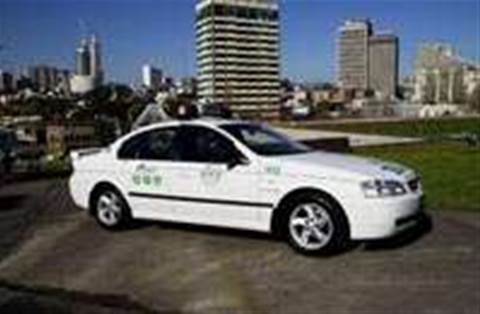At three o'clock on a Sunday morning, as the city starts to slumber, it's rush hour in Premier Cabs' call centre as people ring for a ride home after a big night on the town.
The humble telephone is the lifeblood of any taxi company so, when the system at Sydney's Premier Cabs reached its used by date, communications manager Paul Kelly decided it was time to look to Voice over IP.
With a fleet of around 1000 vehicles, including standard cabs, MaxiCabs and luxury Prestige Service taxis, Premier Cabs takes more than 3.6 million bookings annually at the company's 20-seat call centre.
Voice over IP transmits telephone calls over data networks rather than telephone lines, allowing users to avoid long distance call charges, but Premier Cabs' call centre mostly handles inbound calls from local customers.
As such, the attraction of Voice over IP for Kelly was not the lure cheap phone calls but the flexibility it offers in terms of call management and business continuity should disaster strike.
Attending a business continuity seminar was ''a bit of an eye opener'' to the problems Premier Cabs would face should it be forced to evacuate its call centre, Kelly says.
“You think evacuation means we've got to go out of the building for a couple of hours or so but, when you think about it, something else could happen and the whole building might not exist any more.
“We've had a couple of incidents where we've had to move out of the building, when there's been smoke or other issues, but never a total disaster - yet that's the kind of thing we're thinking of. If that does happen, where do we go?” he says.
“Up and down the east coast of Australia there's about 30 cab companies that have all got the same problem; what happens if their communications centre goes down? As it is you have to have a warm site that you can go to, which means replicating all the hardware and infrastructure including the telephone land lines. We're trying to move away from that, and Voice over IP technology will allow us to quickly and easily redirect calls in an emergency.”
The ease of call recording, for training and quality control, was another driver for Premier Cabs to embrace Voice over IP.
After putting together a detailed requirements document, Premier Cabs went out to market last year. Without going to tender, it chose Sydney systems integrator NSC to replace its ageing Avaya Lucent PABX switchboard which Avaya no longer supported.
The rollout
In its place, NSC installed an Avaya S8710 IP Multi-Connect System - consisting of two Intel Xeon servers running Red Hat Linux. They supply 99.999 percent guaranteed uptime for the telephone system and are backed by two Uninterruptible Power Supplies, designed to kick in should the power fail.
The system took around six working days to install, with less than five minutes down time during the handover.
The flexibility of the Avaya system allows it to offer both Voice over IP and traditional PABX features. This was vital to Premier Cabs because, while the Avaya system was installed in February, the taxi company is yet to switch over to Voice over IP due to the need to integrate with its existing call booking system.
The computerised booking system from Raywood Communications is integrated with the telephone system at the handset level, requiring customised handsets.
Once that computer integration is done at the server level, Premier Cabs will be able to upgrade to Voice over IP telephone handsets.
Avaya's sale of Voice over IP handsets surpassed those of traditional handsets 12 to 18 months ago, but the company realises Voice over IP needs to offer more than just cheap calls to continue growing, says Avaya South Pacific head of convergence practise Mark Duncan.
“We're beyond just the toll bypass savings of yesteryear, such as companies with offices in different states looking to cut call costs. What's actually happened is it's a more competitive market, carriage providers such as Telstra and Optus have cut their rates so those kind of savings have all but disappeared. Carriage is very cheap these days, especially for the large corporates - they have very good buying people and negotiate very good rates,” Duncan says.
“In order to drive Voice over IP we've had to look for more business benefits, such as the improved communication and collaboration it delivers. IP telephony and the IP architecture lends itself very well to business continuity. Because of the single server environment where you control everything from one site with remote gateways, you can then have a backup server in any of your remote sites with a copy of the data from the main site and it's very easy to reconfigure should disaster strike.”
While the need to integrate with the Raywood booking system has delayed Premier Cabs' move to Voice over IP, the fact the taxi company could still use the new Avaya equipment with its old telephone handsets illustrates a strength of Avaya products, Duncan says.
“We [Avaya] protected the existing investment and were able to deliver these additional functions through the IP-enabled system. That was phase one. Phase two is to role out Voice IP handsets and move the computer integration from the handsets to the Application Enablement Services server that we've included in the solution for Premier.”
Such complications are to be expected in an industry that has always been quick to embrace new technology, Craig Neil, the managing director at integrator responsible for the rollout, NSC.
As systems integrator, NSC has found the level of technology used in the taxi industry to be incredibly high. “There's a lot of integration and their contact centres are even more complex than some of the major banks,” Neil says. “Technology is a certainly competitive edge in this industry.




_(21).jpg&h=142&w=230&c=1&s=1)
_(27).jpg&h=142&w=230&c=1&s=1)







.jpg&w=100&c=1&s=0)











